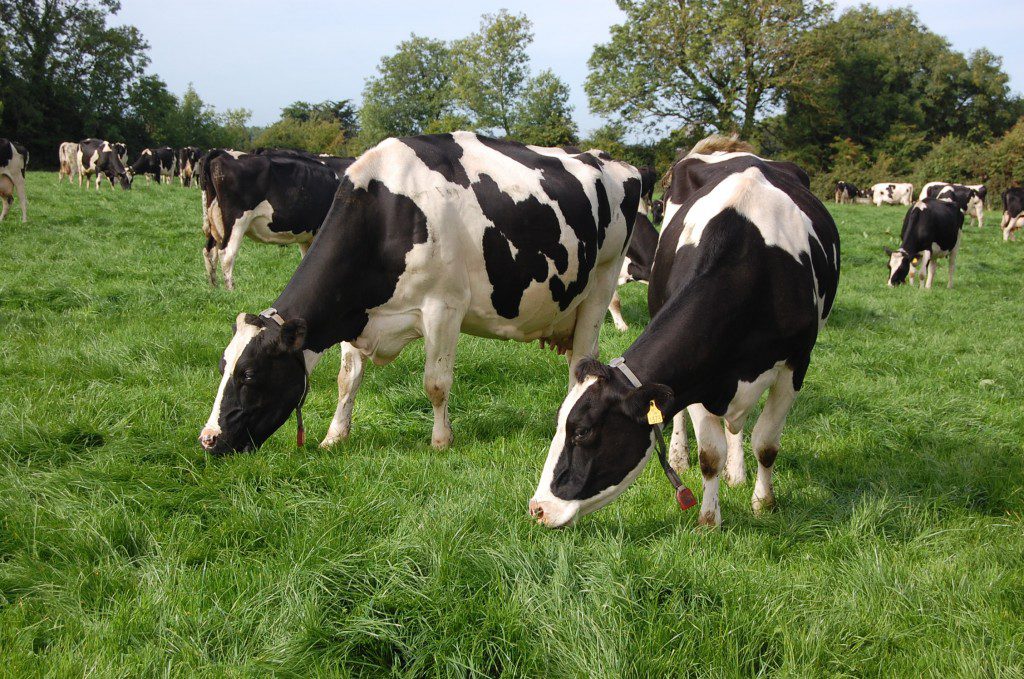A Co. Laois father and son who are dairy and beef farmers, and contractors, have availed of automation as they increased their herd size – to boost efficiency.
Pierce and Michael Malone from Ballypickas, have automated their: milking; calf feeding; and yard cleaning systems to facilitate an increase in their dairy herd from 70 to 140 cows in the last three years.
The Malones who have 70ac of their own land, supplemented with rented ground, do a small amount of baled silage contracting in the Laois and Castlecomer areas.
They installed two Lely robots three years ago, with the plan of expanding the British Friesian herd that is being crossed with Holsteins.
“It was a massive decision to install the robots, from an investment and efficiency point of view,” said Michael Malone.
The Malones went to the first demonstration of the robots at the National Ploughing Championships where there was a plastic dummy cow’s udder, showing how the machine attached and functioned.
“Shortly after that, my uncle installed robotic milking on his farm in south Kilkenny,” Malone said.
Adapting to the robots in the first year was challenging, according to Malone. “Training in the cows and getting everything set up took time.”
Milking has now reduced to twice daily from three times daily, with the herd getting late into lactation.
The Malones previously ran an 8-unit milking parlour, where their electricity costs were €900 to €1,000 every two months. “When the robots were installed in an existing building on the farm, with a small amount of building work required, that went up to €1,500 to €1,600, but when we changed supplier, it went down to €1,200.”
With the robotic milking established and working well for the Malones, they installed an automated yard cleaning system, Lely’s Discovery. Again, the increase in the volume of cows and increased calving spurred them on.
“We have a lot of short passageways and it is able to tackle all of them. We previously used manual hand scrapers, and were up in the middle of the night, working them, while looking at the cows, during the calving season. The sheds were getting fuller.
“This cleans the yard every couple of hours and can be programmed to go on different routes,” said Malone.
“Prior to its installation, we were trying to get warm milk one-and-a-half miles over to the out farm twice a day. Now the calves are getting milk powder whenever they want it, in exact amounts. You will always have a slow calf but it’s working very well. It has reared 90 calves this year.’
It would be even more efficient if there was broadband on the out farm, Malone said.
That would eliminate the need to go over and check twice a day – you would get away with once daily.
All the pieces of equipment work together and provide the Malones with flexibility. “With the robotic milking, if you’re out on the baler at 6:00pm, you don’t have to rush away to do the milking, you can leave it until 8:00pm and the cows won’t be agitated.”
The Malones also invested in a Zero Grazer. “To put lane ways into our rented land would have cost us, so we bought a Zero Grazer which brings grass into the cows for six hours during the night. We knew that if we wanted to increase the numbers, the grass had to come from somewhere.”
While Malone doesn’t believe Ireland is quite ready for driverless tractors – “the fields aren’t big enough” – he contends that automation is the way forward.
You can’t fight it. It’s the way things are going to go, and you can’t get labour. You go into the supermarket and there’s automation. Fighting it isn’t going to work.
Automation on the family farm has allowed the family to streamline the processes. “I was able to go and do an AI course,” said Malone.
“You have more time to manage the cows and the grass, but you still can’t go 100 miles away. With the amount of cows we have, less labour is involved now, but the two of us are still doing the same amount of work.
“There are so many different jobs to be done from AI to organising grass, spreading manure and topping paddocks. You won’t pay for automation if you put your feet up.”
What about future plans? “There would always be things going on in your head, but you have to see what happens. There’s no such thing as standing still in farming.”
